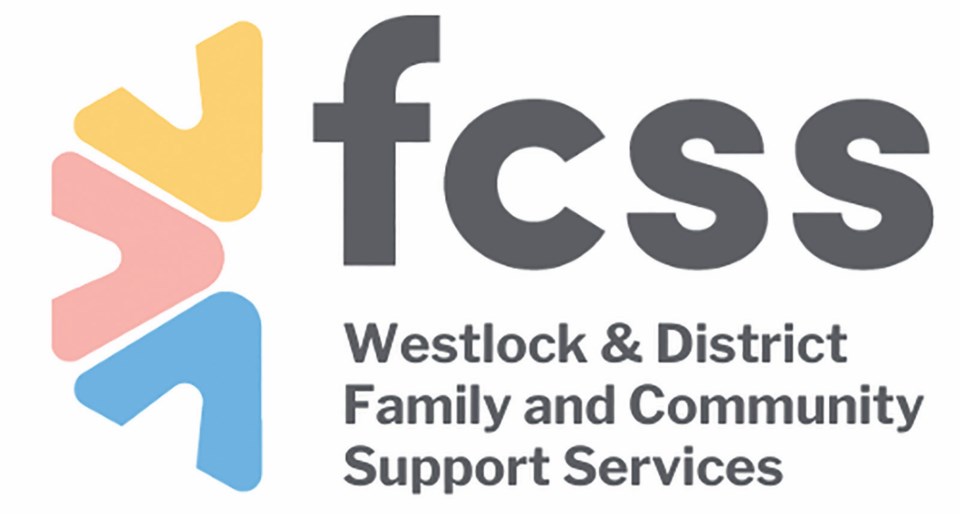WESTLOCK – Residents across the Westlock area are being asked for their input to help address the issue of homelessness, as the Westlock and District Family and Community Support Services (FCSS) rolls out a housing and service needs estimation survey.
With the support of the Town of Westlock, Westlock County, and the Village of Clyde, FCSS announced Feb. 9 they have recruited the Rural Development Network (RDN) to conduct a housing and service needs estimation.
The quest to find a solution for the region’s homeless came after a 60-year old Westlock man, Timothy Phillips, was found frozen to death near the Rotary Spirit Centre in January 2022. Since then the Westlock Homelessness Coalition, a group of 14 that includes reps from Westlock Family and Community Support Services, Alberta Health Services, Westlock RCMP, Hope Resource Centre, Alberta Addiction and Mental Health, plus the three municipalities was formed. In addition, a group of individuals wanting to create a local homeless shelter, named after Phillips called ‘Timothy’s Safe Haven’ was also talked about at the time.
“We are excited to be rolling out this survey in partnership with RDN, Westlock and District Homelessness Coalition, and Timothy’s Safe Haven. The results of the survey will help build a plan to collectively address housing insecurities in our community and ultimately help those most vulnerable,” said FCSS executive director Tracy Proulx. “The key to this project’s success is agency and community participation so we look forward to the survey being widely shared.”
Proulx said the FCSS applied for a grant on behalf of the coalition with the project receiving $20,000 in grant money through the Government of Canada’s Reaching Home program which is being administered through the RDN.
The project is expected to provide a comprehensive picture of housing insecurity and homelessness in Westlock. It will also inform service providers and municipal, provincial, and federal policies, practices, and funding decisions on homelessness, as well as housing, and support services and elevate and incorporate the voices of people experiencing homelessness in the solutions to end homelessness.
The survey will be available online here and at participating agencies from Feb. 13 to March 31, including the Westlock Library, Westlock Community Victim Services, Alberta Supports, Westlock County Community Services, Hope Resource Centre, and Youth Unlimited - YFC Westlock, and Healthy Families Healthy Futures. It can also be completed in person at the Westlock and District FCSS office.
Survey details
Survey coordinator Emma Langevin with FCSS said they were able to customize it for Westlock based on perceived local needs and engaged coalition partners and community members during the design stage “to determine what our main concerns were in our community, how do we do a survey and the questions in the survey that reflect that. Several focus groups, all who provided input for the survey, included one that engaged the RDN about survey questions, a second focus group involved the Westlock and District Homelessness Coalition to gather perspective from local service providers and a third focus group involved concerned and interested citizens from the community.
“We reached out to Timothy’s Safe Haven through social media, because our hope was that, those members have personal invested interest in the issue but also connections to people with lived experiences of homelessness and we felt like those voices were very important to include from the beginning, even in the survey design phase,” said Langevin, noting a meeting was held Feb. 2 with the community based focus group where attendees and participants expressed interest in helping with the survey and a desire to stay engaged in the process.
The survey itself has a short version with 19 questions and a long version with 28 questions, and lists a range of questions from personal demographics including age, income and gender, to current housing situations, community living, income sources, support services including if they feel “they can access support systems and are those support systems available in the community,” said Proulx.
“Everybody is encouraged to do (the survey) not just people who are experiencing housing insecurities,” said Proulx. “We really want to get a snapshot of how the community is doing with housing and with social service needs.”
Data collected across the community will help the coordinating agencies and municipalities understand the extent of housing and service needs and will also help inform the development of a housing action plan.
"Given the increasing number of people experiencing housing insecurity and homelessness across the country as a result of COVID-19 and rising inflation rates, it is more important than ever to collect accurate data on the state of housing and homelessness in rural communities such as Westlock, to provide an accurate picture of current need and build a plan to address housing and service needs moving forward," said project manager of community development and homelessness estimations at RDN, Emma Wallace.
Proulx also noted that survey results are expected to be compiled by the summer, will help develop the plan and give them direction.
“Do we need a shelter, do we need pods of some kind or do we just need an action plan that says when somebody homeless comes through somebody’s door this is how we’re going to respond, and the survey results will help us guide that and will give us direction for that,” said Proulx. “It will specify and lay out basically, a road map of how we’ll address housing within the community based on the survey results.”



